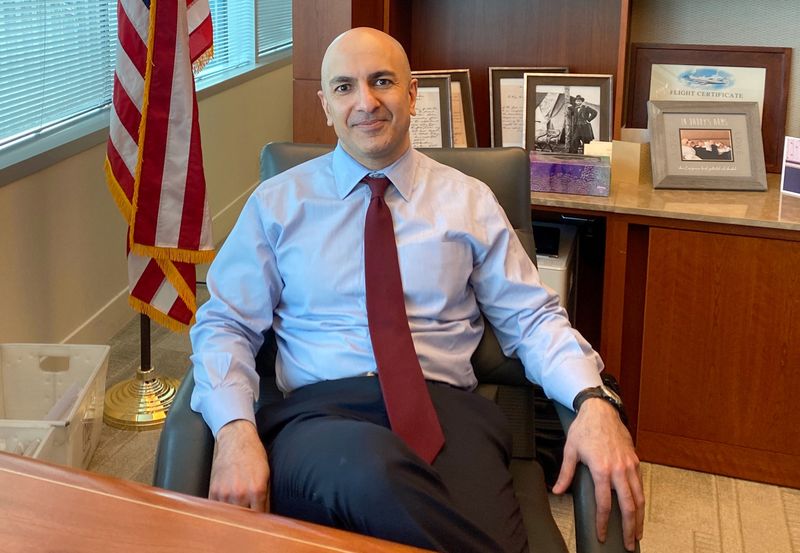WASHINGTON (Reuters) - The U.S. economy could benefit if the nation were to "lock down really hard" for four to six weeks, a top Federal Reserve official said on Sunday, adding that Congress can well afford large sums for coronavirus relief efforts.
The economy, which in the second quarter suffered its biggest blow since the Great Depression, would be able to mount a robust recovery, but only if the virus were brought under control, Neel Kashkari, president of the Minneapolis Federal Reserve Bank, told CBS' "Face the Nation."
"If we don't do that and we just have this raging virus spreading throughout the country with flare-ups and local lockdowns for the next year or two, which is entirely possible, we're going to see many, many more business bankruptcies," Kashkari said.
"That's going to be a much slower recovery for all of us."
He said Congress is positioned to spend big on coronavirus relief efforts because the nation's budget gap can be financed without relying on foreign borrowing, given how much Americans are saving.
"Those of us who are fortunate enough to still have our jobs, we're saving a lot more money because we're not going to restaurants or movie theaters or vacations," Kashkari said.
"That actually means that we have a lot more resources as a country to support those who have been laid off," he said.
The Democratic-led U.S. House of Representatives approved a $3 trillion relief bill in May, while Senate Republicans, many of whom have expressed concerns about mounting debt, countered by proposing a $1 trillion aid package last week.
Efforts to craft a compromise appear stalled.
In an interview with ABC's "This Week" on Sunday, Treasury Secretary Steven Mnuchin said President Donald Trump would spend what was needed, but that the deficit was a factor.
"There's obviously a need to support workers and support the economy," he said. "On the other hand, we have to be careful about not piling on enormous amount of debts for future generations."
Kashkari took a different view, stressing both the high level of domestic saving and historically low interest rates.
"I'm not worried about it," he said. "Congress should use this opportunity to support the American people and the American economy."
"If we get the economy growing, we will be able to pay off the debt," Kashkari added.
